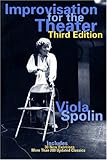
The holiday season is one of ups and downs for many families.
Angela Imming, today's guest blogger, voracious reader and a dear friend of mine, escaped the western holiday traditions with
The Death of Vishnu
by
Manil Suri.
Diving into Hindu Mythology at Christmas provided a step outside of my world and purview into the unknown. Having gone from a dry, factual and barely artful historic crime The Devil in the White City: Murder, Magic, and Madness at the Fair that Changed America , which I felt compelled to read because it was a goodbye gift from a friend at my previous place of employment, I was seeking a book that would take me a little higher – further and more beyond reality.
, which I felt compelled to read because it was a goodbye gift from a friend at my previous place of employment, I was seeking a book that would take me a little higher – further and more beyond reality.
Answer this though… how does a man whose core competency is Mathematics, as proven by his professorship at the University of Baltimore, pen an instant classic study of personalities in his second language, English?
Manil Suri, who was on Time Magazine ‘people to watch list’ in 2000 is obviously smart, mastering both numbers and words. As proven in The Death of Vishnu, he also beholds the incredible ability to understand and describe the human psyche in a brilliant array of story telling.
Vishnu- part of a multi-tenant flat in Bombay. He loves a prostitute. He does odd jobs. He is drunk but also unable to steal from the tenant mourning the passing of his wife.
Vishnu- part of the Hindu trinity. He is the keeper of balance. His karma keeps the world in order.
Vishnu- is he simply a poor man, a drunk and would-be crook? Or is he a god?
The delta between the two is fantastic. That question provides the roadmap for the novel; the path the characters journey through and across and over and down.
As day-by-day routine, Suri describes the tenants of the building with chronic detail. Most of the characters are tools used to describe the daily life and times of being in Bombay. The husbands obey their wives, in a male-dominated culture, for no other reason than the ease of it all. The children argue, one with the other; set one another up for punishment and get bopped upside the head with no lesson taught, learned or assumed. The cigarettewalla despises the radiowalla and Tall Ganga is better than Short Ganga, who has been promised Vishnu’s spot upon his death. Comic relief is abundant, in Christopher Moorish fashion, as stories of these relationships draw the average reader into their lives. Laugh out loud moments are not foreshadowed. Suri makes it impossible for us not to assimilate with people who, for the most part, could not possibly be more polar opposite than the average English speaking reader.
While the story begins a little on the Hollywood side for me, describing gyrations, nips and tucks required to host a poker party in a multi-tenant apartment flat in Bombay during the late 70s or early 80s, his story quickly paints the antagonist and would be hero, Vishnu as the cynosure.
Some of the most beautiful prose and story telling I’ve witnessed is composed by Suri through a couple of soul searching characters. Mr. Jalal is a tenant of the building whose son eloped with one of the tenant’s daughters. He is an intellect who realizes he’s wasted most of his life reasoning and rationalizing. He’s a doubter. Anything that doesn’t pass the test of reason is disregarded. His wife is one of those pushed aside.
After failed attempts to feel ‘holy’ by self-torture and deprivation, Mr. Jalal decides to lower himself enough to cuddle up next to Vishnu; to become one with the lowest form of life. Next to Vishnu, who is dying on the landing, floating through the nether world, he sleeps. His quest to find truth in his own life intersects with Vishnu’s ascent (or descent – I won’t spoil the ending) with a beautiful menagerie of Hindu Mythological characters. Upon being awakened, Mr. Jalal is convinced that he’s had a vision, not a dream, and that Vishnu has come to him to be a prophet and share the news of his godliness, lest the word be destroyed. Being an intellect and not prescribed by any religious rules, Mr. Jalal does not consider the consquences his ‘blasphemy’ brings.
Mr. Jalal’s search for the truth- his sudden disposal of reason and rationalization brings terror and sorrow.
Vishnu’s stint in purgatory – his dance with Lakshmi, his longing for his mother and his thirst for Padmini brings a colorful rapture.
Vishnu- is he simply a poor man, a drunk and would-be crook? Or is he a god? Even Vishnu isn’t sure…
The Death of Vishnu is funny and adventurous and sorrowful. It’s fiction and non-fiction. It’s domestic and foreign. It’s stoic and passionate. The characters are annoying, honorable, normal and completely out of this world. The book is enchanting and while I am not a fan of the series, I will likely read whatever Manil Suri produces. And laugh at the Dance of Helen.
is funny and adventurous and sorrowful. It’s fiction and non-fiction. It’s domestic and foreign. It’s stoic and passionate. The characters are annoying, honorable, normal and completely out of this world. The book is enchanting and while I am not a fan of the series, I will likely read whatever Manil Suri produces. And laugh at the Dance of Helen.







